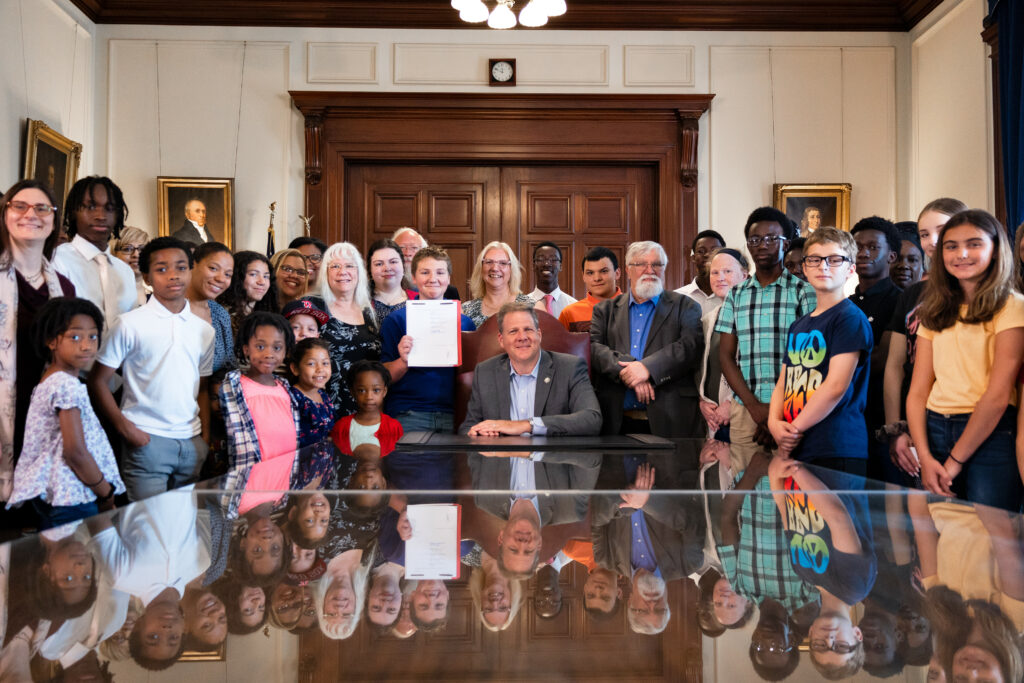When New Hampshire Gov. Chris Sununu (R) signed legislation making more families eligible for Education Freedom Accounts, he called the program a “tremendous success.”
But despite the popularity of EFAs — with more than >>> families accessing them — Granite State Democrats continue to denounce the policy, arguing parents can’t be trusted to choose educational alternatives for their kids.
Sununu signed HB 367 on Tuesday, which allows families earning up to 350 percent of the federal poverty level to access the program.
“Expanding EFA eligibility to 350 percent of the federal poverty level would increase the eligibility level for a two-person household by $9,860, for a three-person household by $12,430, and for a four-person household by $15,000,” according to the Josiah Bartlett Center for Public Policy.

“New Hampshire funds students — not systems,” Sununu said when he signed the measure. EFAs give the state’s portion of a student’s public school funding — around $5,000 out of the more than $19,000 spent on the average student — to parents, allowing them to spend it on private schools, homeschool expenses, etc.
“Our Education Freedom Accounts legislation has been a tremendous success, and we are committed to further expanding eligibility for students who need it most. New Hampshire will always prioritize the success of our kids, especially those without the financial resources necessary to attend a school that fits their path.”
Senate Minority Leader Donna Soucy (D- Manchester) repeated her party’s rhetoric that allowing parents to choose the education alternative for their students and then decide if it’s working or not doesn’t provide enough “accountability.”
“Gov. Sununu showed a complete disregard for educational accountability and fiscal responsibility in our state. By signing HB 367 into law, the governor expanded the income threshold of a shadowy program that is already more than $23 million over budget. The reality is that the Education Freedom Account (EFA) program completely lacks any meaningful level of accountability, both financially and educationally,” Soucy said.
In the past, New Hamshire Democrats have said parents without college educations are too incompetent to make educational choices for their children and used foul language to attack private and religious education.
Advocates for EFAs note private schools have the ultimate accountability: If parents aren’t happy with the results, they can pull their kids out and send them to a different school.
“Contrary to the claims made by Senate Democrats, the EFA program does not lack accountability,” said state Senate President Jeb Bradley (R-Wolfeboro). “EFAs are accountable to parents or guardians, who know best what their children need. By leveraging state funds through the EFA program, working families can pay for educational expenses, such as private school tuition, tutoring, textbooks, and other necessary educational resources.”
Soucy disagreed.
“By supporting the expansion of EFAs, the governor showed that he cannot be trusted to be responsible with taxpayer dollars and that he is uninterested in ensuring that these educational facilities are really doing the work to set our youngest citizens up for success.”
Meanwhile, the latest national testing data showed the biggest one-time drop in scores among public school students in the wake of the COVID-19 classroom lockdowns. But students attending parochial schools experienced no meaningful decline in either reading or math on the latest assessment tests.





